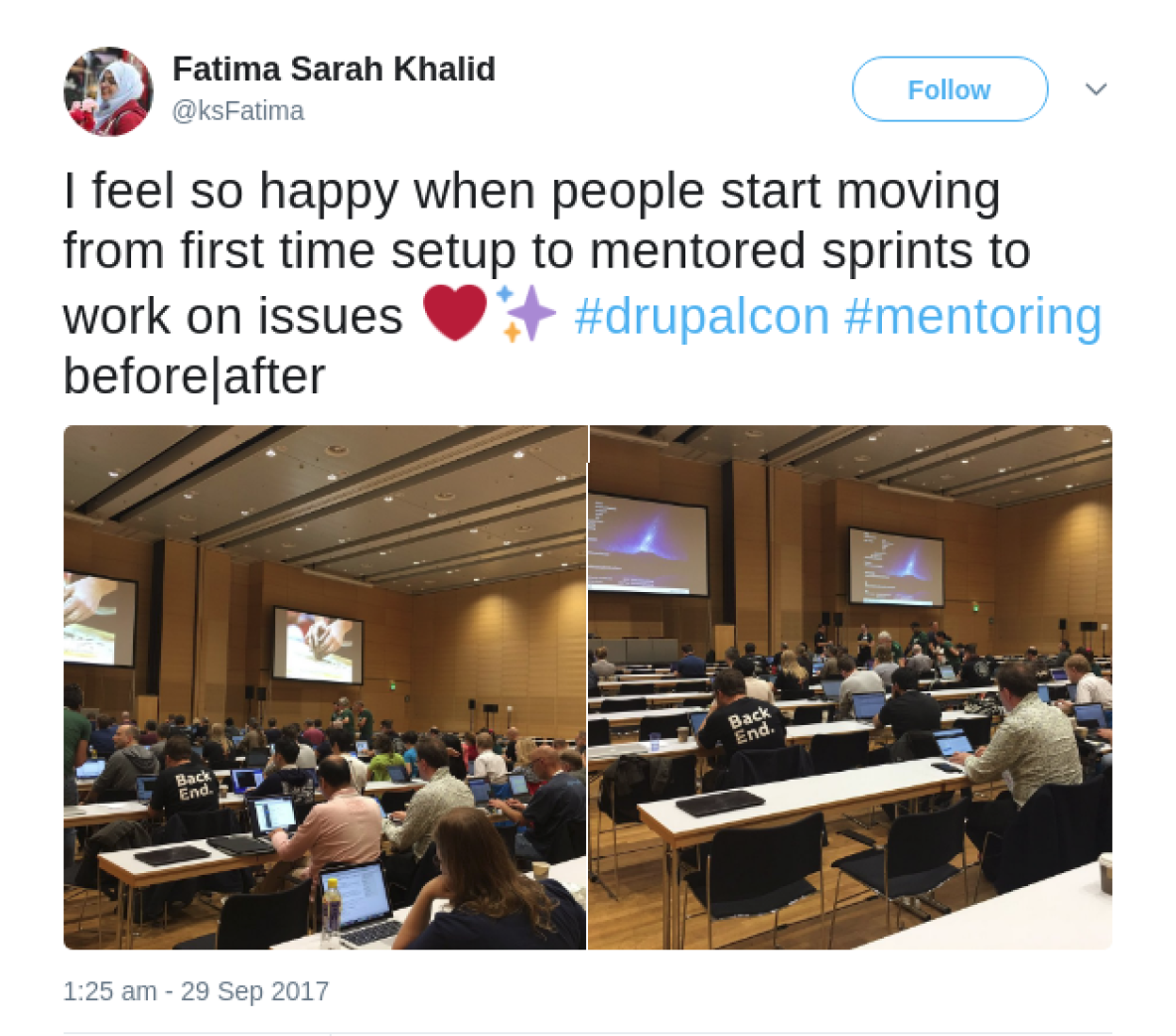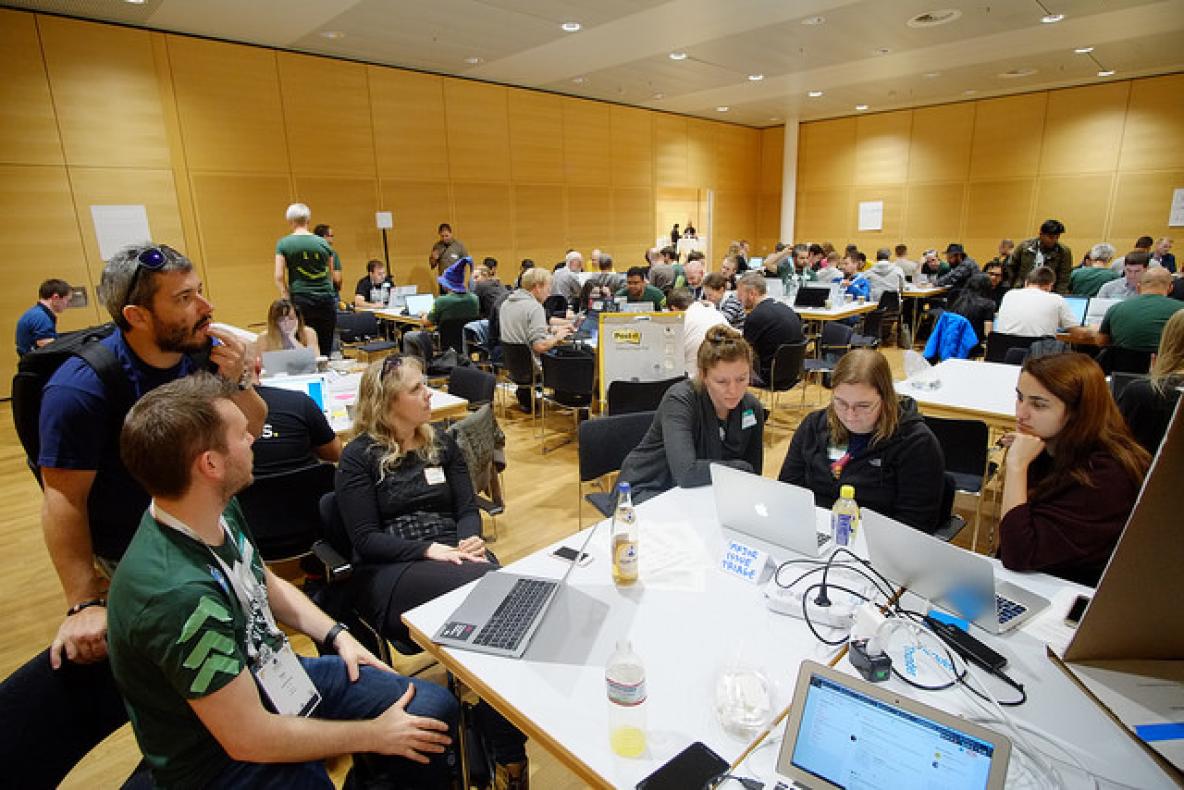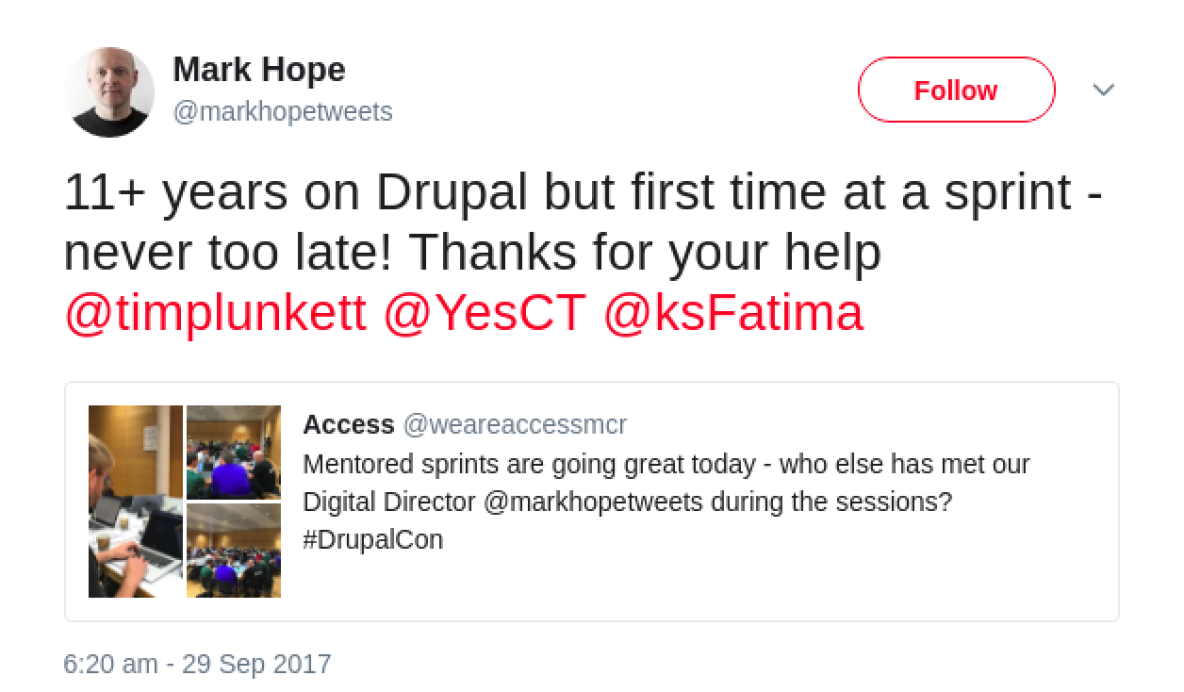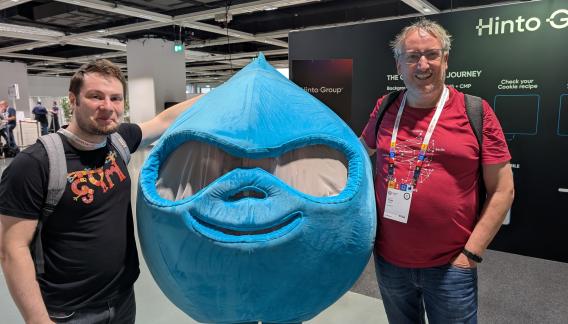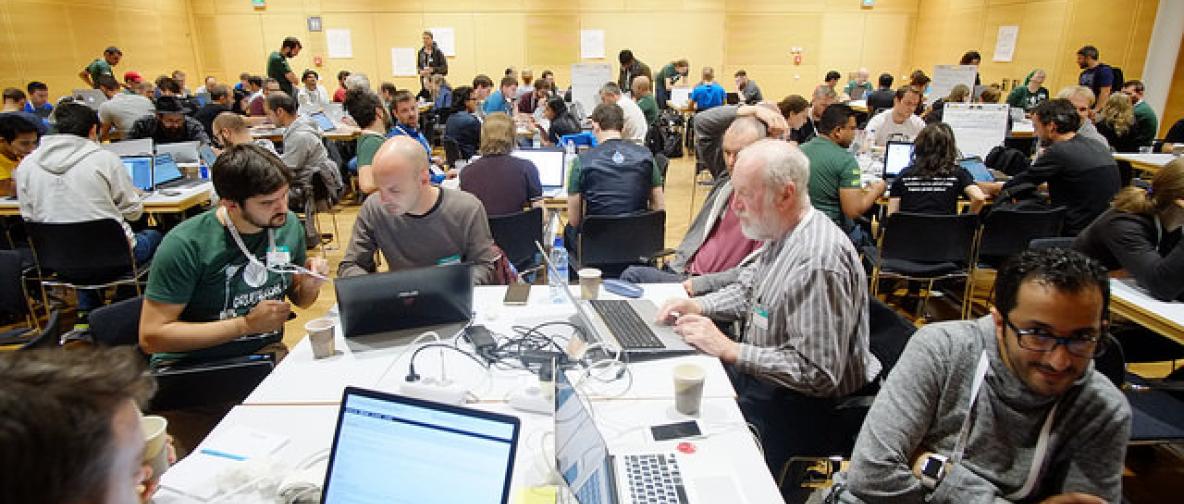
Drupalcon mentored core sprint - part 2
Hello! You've arrived at part 2 of a series of 3 blog posts about the Mentored Core Sprint, which traditionally takes place every Friday at Drupalcon.
If you haven't already, please go back and read part 1.
You may think sprinting is not for you ...
So, you may be the kind of person who usually stays away from the Sprint Room at Drupal events. We understand. You would like to find something to work on, but when you step in the room, you get the feeling you're interrupting something really important that you don't understand.
It's okay. We've all been there.
That's why the Drupal Community invented the Mentored Core Sprint. If you stay for this sprint day, you will be among friends. You can ask any question you like. The venue is packed with people who want to make it a useful experience for you.
Come as you are
All you need in order to take part in the first-time mentored sprint are two things:
- Your self, a human who is interested in Drupal
- Your laptop
To get productive, your laptop needs a local installation of Drupal. Don't have one yet? Well, it's your lucky day because you can your Windows or Mac laptop set up at the first-time setup workshop!
Need a local Drupal installation? Come to the first-time setup workshop
After about half an hour, your laptop is now ready, and you can go to the sprint room to work on Drupal Core issues ...
You do not need to be a coder ...
You do not need to be a coder to work on Drupal Core. Let's say, you're a project manager. You have skills in clarifying issues, deciding what needs to be done next, managing developers, and herding cats. You're great at taking large problems and breaking them down into smaller problems that designers or developers can solve. This is what you do all day when you're at work.
Well, that's also what happens here at the Major Issue Triage table!
But - you could just as easily join any other table, because your skills will be needed there, as well!
Never Drupal alone
At this sprint, no-one works on their own. You work collaboratively in a small group (maybe 3-4 people). So, if you don't have coding or design skills, you will have someone alongside you who does, just like at work.
Collaborating together, you will learn how the Drupal issue queue works. You will, most likely, not fix any large issues during the sprint.
It's never too late
Even if you've been in the Drupal community for over a decade, just come along. Jump in. You'll enjoy it.
A very welcoming place to start contributing is to work on Drupal documentation. This is how I made my first contribution, at Drupalcon London in 2011. In Vienna, this table was mentored by Amber Matz from Drupalize.Me.
This is a three-part blog post series:
Part one is here
You've just finished reading part two,
So now you can go and read part three
